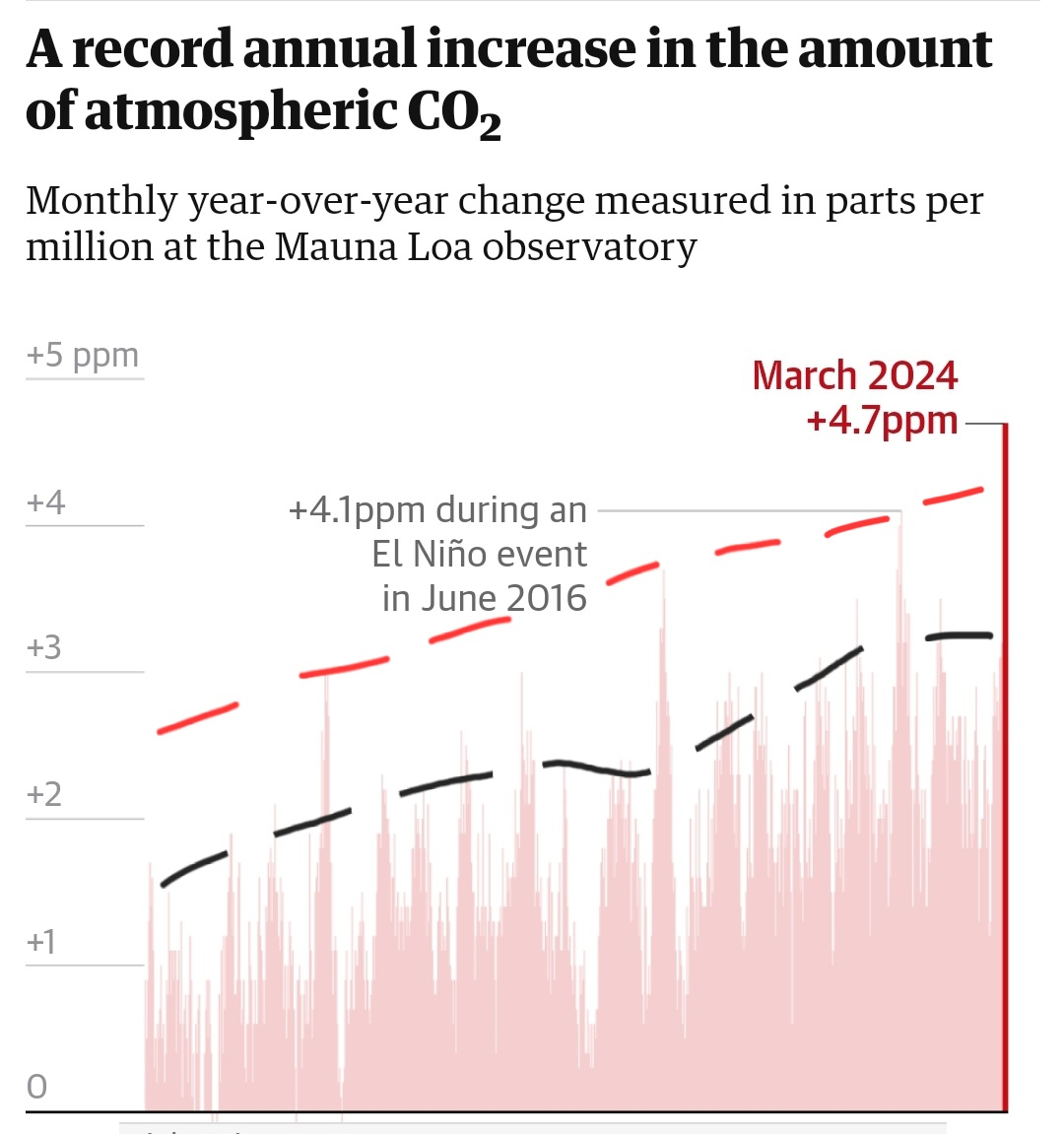Not only are we not slowing we are still accelerating, shit is fucked
I'm not going to pretend to know what's going on - I'm out of the loop as a conscious choice on this.
My first hunch is that this is either a major global carbon sink being depleted/saturated, or a tipping point where carbon is being released from a source that it was previously sequestered or a carbon sink has undergone an inversion and has become a source of emissions.
For an example of a carbon sink being saturated, the ocean is a good example of dissolving a significant amount of carbon dioxide but, as it becomes more saturated, at some point it ceases to function as a sink.
An example of tipping point of carbon being released is the classic permafrost melting and the methane held under the permafrost, some of it clathrate, being emitted.
An example of a carbon sink undergoing an inversion is rainforest drying out and experiencing catastrophic forest fires, thus turning what was a sink into a source (tbh peat bogs burning are probably a more accurate example but it's less easy to grapple with as a thought experiment).
It's very dismal to spend time looking into this stuff.
30 years ago I asked a Scripps Institution of Oceanography lecturer on computer climate models why they were not including permafrost/methane feedback in the models and got told "we decided to focus on other things". Maybe they wouldn't be so shocked now if they had looked at all of the inputs.
That's probably not a big deal. Don't even worry about it 🫠
Yeah, don't worry about the planetary autoclave doors being sealed by the rich.
Sorry guys this is probably my fault, i've been really gassy this year
The increase has been spurred, scientists say, by the periodic El Niño climate event, which has now waned, as well as the ongoing and increasing amounts of greenhouse gases expelled into the atmosphere due to the burning of fossil fuels and deforestation.
(I added some rough trendlines for context)

WE DID IT REDDIT!
Earth
The world’s #1 planet!
A community for the discussion of the environment, climate change, ecology, sustainability, nature, and pictures of cute wild animals.
Socialism is the only path out of the global ecological crisis.